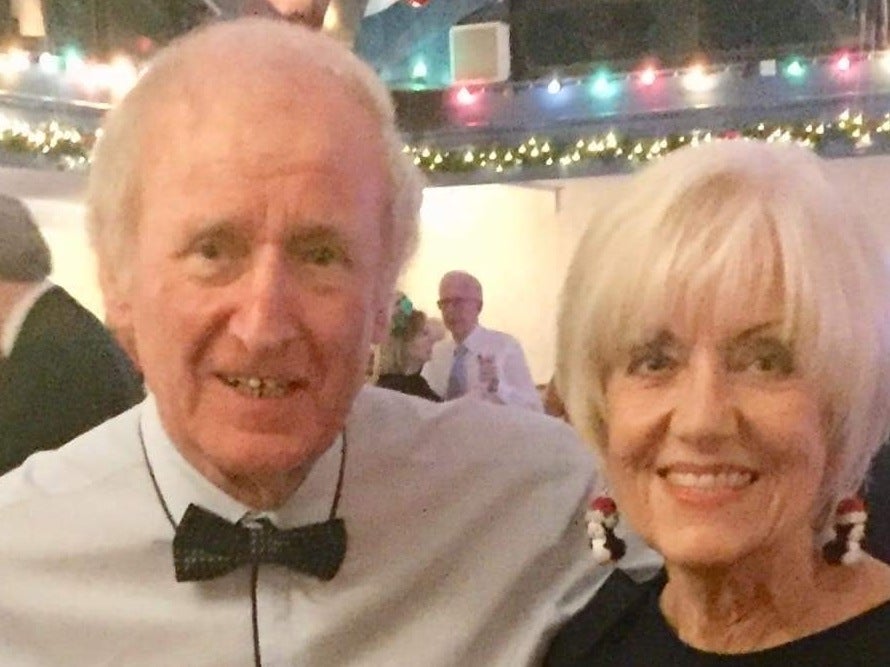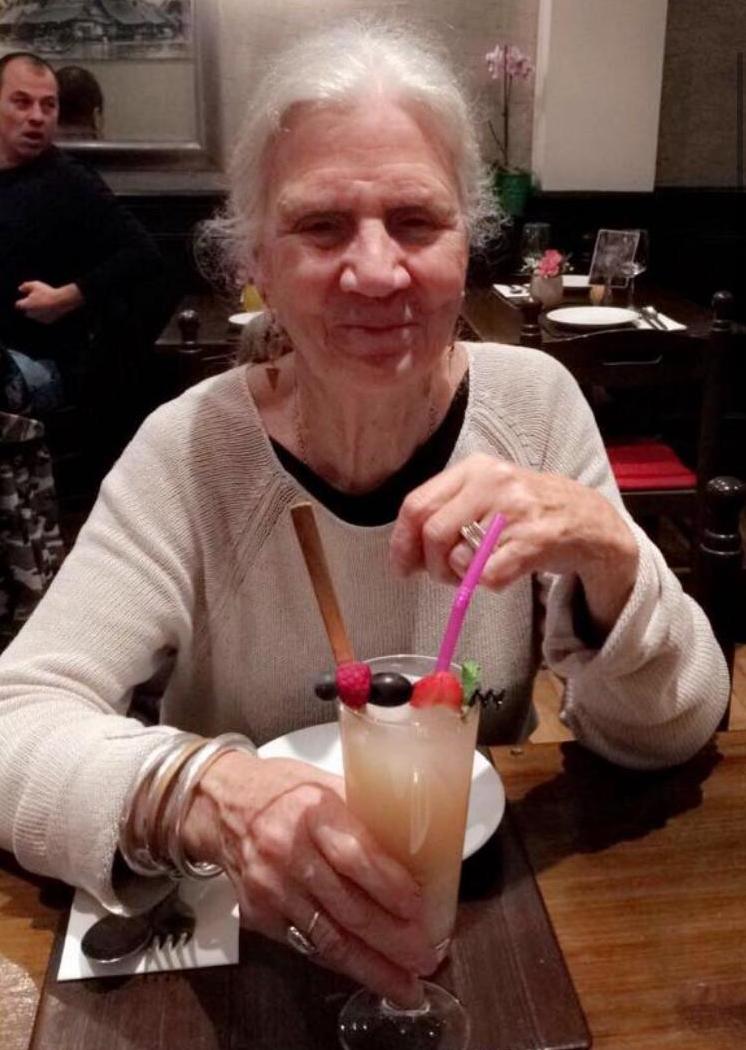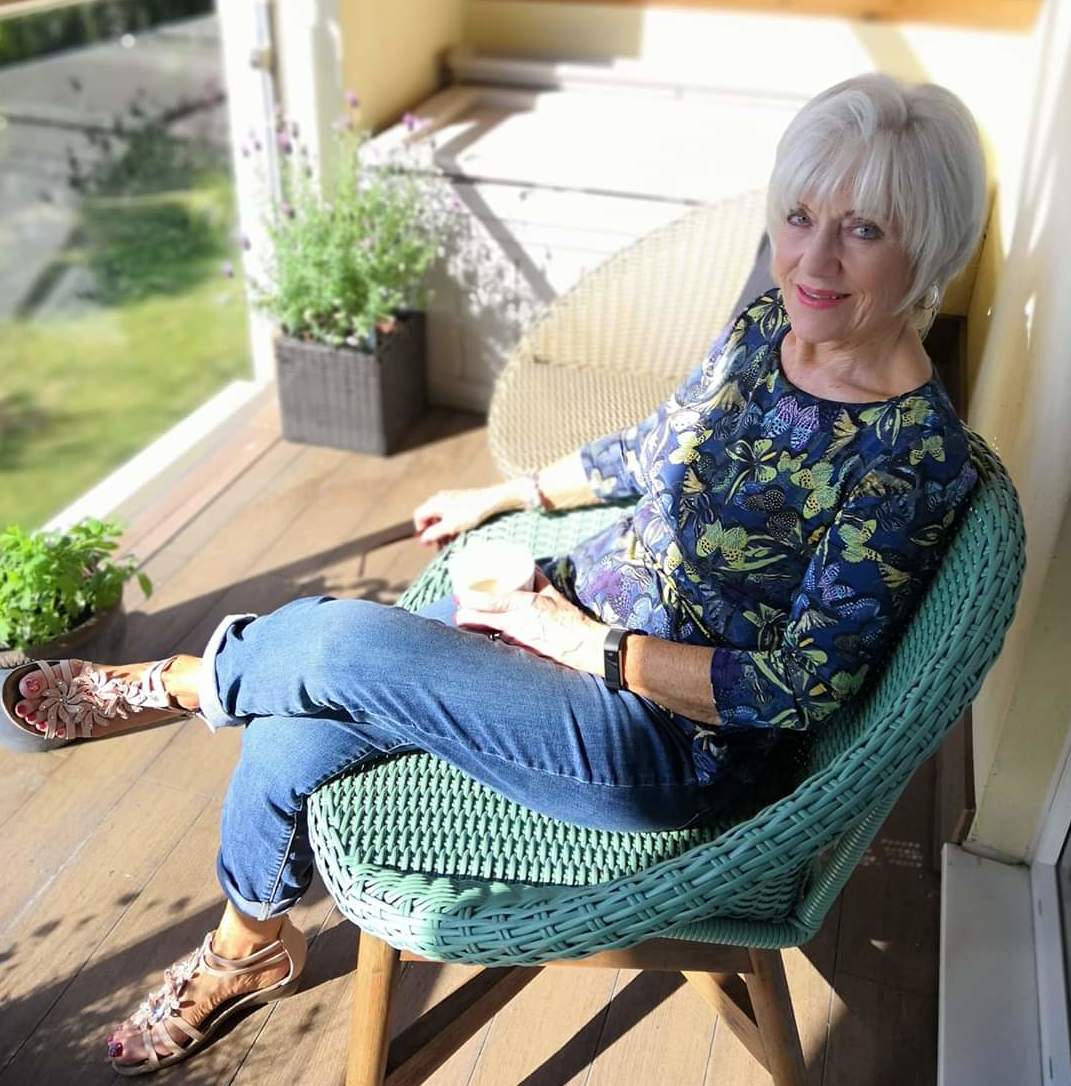'I’ll go bonkers': How over-70s are reacting to coronavirus self-isolation
‘I’m a very sociable person. I do something every day. My husband and I go ballroom dancing; I go line dancing with friends. I’m certainly going to miss that,’ says 76-year-old Dee Tidman

Your support helps us to tell the story
From reproductive rights to climate change to Big Tech, The Independent is on the ground when the story is developing. Whether it's investigating the financials of Elon Musk's pro-Trump PAC or producing our latest documentary, 'The A Word', which shines a light on the American women fighting for reproductive rights, we know how important it is to parse out the facts from the messaging.
At such a critical moment in US history, we need reporters on the ground. Your donation allows us to keep sending journalists to speak to both sides of the story.
The Independent is trusted by Americans across the entire political spectrum. And unlike many other quality news outlets, we choose not to lock Americans out of our reporting and analysis with paywalls. We believe quality journalism should be available to everyone, paid for by those who can afford it.
Your support makes all the difference.When Matt Hancock announced over the weekend that everyone over 70 in the UK would soon be asked to stay at home in order to protect themselves from the risk of contracting coronavirus, many of the 12 million people in this age group were taken aback.
The Health Secretary said they would need to self-isolate at home for up to four months, acknowledging that it was “a very big ask” – but saying it was part of the government’s action plan because it would be necessary to protect them.
His terminology caused some confusion, leading Scottish officials to stress that elderly people would not be asked to avoid all contact with other people, but rather “reduce social contact”.
But whether it is termed self-isolation or reduced contact with others, the coronavirus outbreak looks set to affect this group in particular, and many over-70s are concerned about the government’s approach and the “mixed messages” they say are being transmitted from ministers.
Professor Karol Sikora, a physician specialising in oncology who is in is 70s, said communication from the government on the issue had been “appalling” and accused ministers of “playing it by ear”.
“It’s not the age that’s the cut-off, it’s the medical vulnerability of someone. People with lung problems, cardiac failure, diabetes, obesity, smokers, these are the people who are most vulnerable. Vulnerable people should avoid crowds, but there should be no age cut-off,” he said.
“The government strategy and their advice had been great until now, but it’s beginning to fall apart. This has not been thought through. They want to be seen to be doing something, but it’s not evidence based.”
Asked about the impact such a measure would have on people over 70, including himself, Professor Sikora said: “I’ll go bonkers if I have to sit in my house for four months. My wife is 69 so until December she can go out with the dog but I can’t. This is not logical.
“Social isolation is a problem among our population in Britain. Many are already quite isolated. This would destroy their existing social network, which may be the pub, the shops, a lunch club. It would destroy all that completely and they would become more isolated. It’s not worth it and it’s unenforceable.”
Gay Harper, 78, who lives in Hammersmith and suffers from bronchiectasis, a lung condition, said she agreed that it was right for vulnerable older people like her to self-isolate, but accused the government of sending out too many “mixed messages”.

“They shouldn’t have made that announcement until they were absolutely clear what they meant by it. It read as though you would basically be locked in your flat. They should have been able to say exactly what it meant, given some guidelines,” she said.
Ms Harper, who has a large family whom she is in regular contact with, added: “I’m lucky, because I’ve got a nice flat which I like being in. I’ve got social media and lots of family to FaceTime with. I’m well stocked on food and things. I worry for those who don’t have this.”
She went on to express optimism at the efforts that have been shown within communities to reach out to older and more vulnerable people, saying: “I think that the initiatives to look after people who might be in lock-down or are scared to go out are fantastic.
“It makes me think yes, there will be people who are vulnerable and scared and lonely and feel isolated, but hopefully the community will look after these people.”
Dee Tidman, 76, who lives with her husband Roger, 75, in Stourbridge in the West Midlands, said she was struggling to come to terms with the fact that she would have to stop taking part in many social activities she enjoys on a regular basis.
“I’m a very sociable person. I do something every day. My husband and I go ballroom dancing; I go line dancing with friends. I’m certainly going to miss that. But I am socially distancing already,” she said.
“I didn’t take it seriously until the middle of last week when someone died in our local hospital. That’s when I started to feel a bit scared. Things are changing so rapidly. We’re all blind to what’s going to happen."

Ms Tidman said over-70s who are still working, such as Mr Tidman, may be the ones that find it most difficult if the self-isolation measures are introduced: "My husband is still working full-time as an accountant, so it’ll hit him probably even more than me because his work keeps him going."
Jan Shortt, general secretary at the National Pensioners Convention, said the organisation had received feedback from many older people concerned about the possibility of the government recommending wide-scale self-isolation for those over 70.
She argued that any long period of isolation would inevitably lead to a downward trend in an older persons’ physical, mental and emotional health, and said resources must be in place to deal with such outcomes.
“There are already those older people living in isolation without family or anyone else to check that they are well and help them if they are not. Others with long-term health conditions are being excluded from their GPs because they have been told to book an appointment online,” said Ms Shortt.
“There is a dilemma regarding the older generation and a balance to be had in the advice given about over 70-year-olds being in isolation for a long period of time. We believe older people are better placed to know their own health needs and will take decisions based on their personal situation.
“The government need a strategy that puts money into the heart of communities (like local councils, local GPs, hospitals, clinics) to monitor those over 75 and ensure that their daily needs are met.”
Professor Robert Dingwall, professor of sociology at Nottingham Trent University, who is a member of two of the expert groups that are advising the UK government on its coronavirus response, said the message needed an "injection of common sense".
He continued: "If you have a dog, take it out for walks – but don’t stop to hang out with other dog walkers. If you usually walk down to the local convenience store, keep doing that – just pick a quiet time to do it.
"Maybe the supermarkets could be asked to set aside a morning each week – or a couple of hours every day – when their shelves will be fully stocked and entrance restricted to over 70s and necessary companions.
“We do not need draconian and potentially inhumane interventions to achieve most of the collective goals here, just to consider some fairly basic social and behavioural science questions. Trusting individuals to make their own risk assessments and devise their own solutions is likely to achieve much more than arbitrary and confrontational exercises of state power. Self-isolation must not turn into self-imprisonment.”
Join our commenting forum
Join thought-provoking conversations, follow other Independent readers and see their replies
Comments